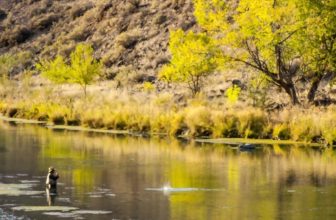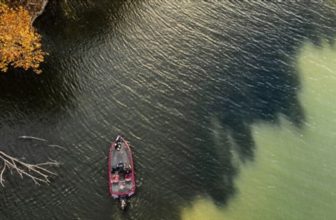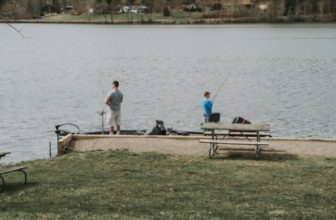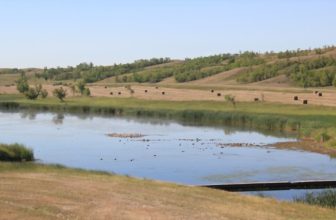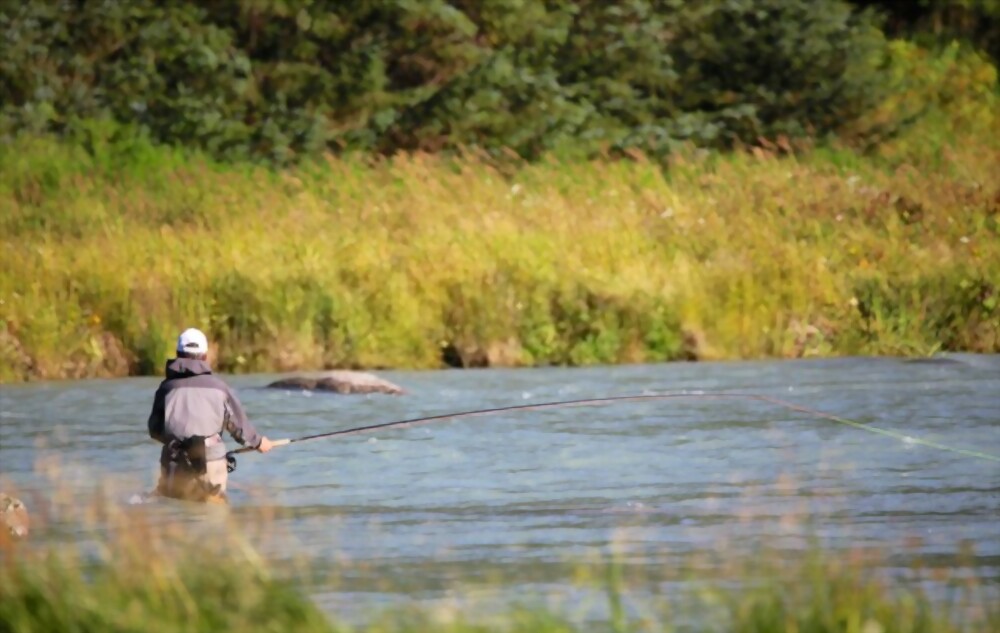
Alaska Fishing License
If you’re planning a fishing trip to Alaska, one of the first things you’ll need to do is obtain an Alaska fishing license. Luckily, buying a license is a straightforward process with a range of options to suit your needs.
Whether you’re a resident or non-resident, planning to fish in freshwater or saltwater, or interested in short-term or long-term licenses, there’s something for everyone.
Before you hit the water, it’s important to understand the rules and regulations regarding fishing in Alaska. From bag limits and size restrictions to gear requirements and seasonal closures, there are a number of regulations in place to protect the state’s fish populations and ensure a sustainable fishery for future generations.
With the right license and knowledge of the rules, you’ll be well on your way to a successful and enjoyable fishing trip in Alaska.
Types of Alaska Fishing Licenses
If you’re planning on fishing in Alaska, it’s important to know the types of licenses available to ensure you have the proper one for your needs.
The most common type of fishing license is the resident license, which is available to Alaska residents only. Non-residents can apply for a non-resident license, which is valid for a specific period of time and allows them to fish in Alaska’s fresh and salt waters. There’s also a special non-resident license for king salmon fishing in certain areas.
Another type of license is the sport fishing license, which is required for all anglers who want to catch fish in Alaska. The sport fishing license is available to both residents and non-residents and can be purchased for a day, week, or year. This license is necessary to fish for all species of fish, including salmon, trout, and halibut.
Lastly, there’s a commercial fishing license, which is required for anyone who wants to fish commercially in Alaska’s waters. This license is only available to residents and allows them to fish for a variety of species, including salmon, crab, and herring.
Commercial fishing in Alaska is highly regulated, and the state has strict rules and regulations in place to protect its valuable fishing resources. It’s important to obtain the proper license and follow all regulations when fishing in Alaska, whether for sport or commercial purposes.
How to Purchase an Alaska Fishing License
Ready to cast your line in Alaska’s pristine waters? Here’s how you can quickly and easily purchase your permit.
First, decide which type of license you need based on your age, residency status, and fishing location. The most common licenses are the nonresident 1-day, 3-day, 7-day, and 14-day licenses, but there are also resident, military, and senior discounts available.
Once you know which license you need, you can purchase it online, in person at a vendor or Alaska Department of Fish and Game office, or by phone. If you choose to purchase online, simply visit the Alaska Department of Fish and Game website and follow the prompts. If you prefer to purchase in person, check the list of vendors on the website to find one near you. When purchasing by phone, call the department’s licensing office and have your credit card ready.
After you have purchased your license, make sure to keep it with you at all times while fishing in Alaska’s waters. It’s also important to familiarize yourself with the fishing regulations and limits for the area you plan to fish in.
With your license in hand and knowledge of the regulations, you’re ready to enjoy the unparalleled fishing opportunities that Alaska has to offer.
Rules and Regulations for Fishing in Alaska
Make sure you always follow the rules and regulations for fishing in order to protect the wildlife and preserve the beauty of the natural environment. Fishing in Alaska is a popular activity, but it’s important to be aware of the rules and regulations in place.
These rules are put in place to ensure sustainable fishing practices and to protect the delicate ecosystem. One important rule to be aware of is the bag limit for each species of fish. This means that you’re only allowed to catch a certain number of fish per day or per trip. It’s important to keep track of how many fish you catch, and to release any extra fish back into the water. This helps to maintain healthy fish populations for future generations of fishermen.
Another rule to follow is to only fish in designated areas. This helps to prevent overfishing in certain areas, and ensures that the fish populations have a chance to replenish themselves. Additionally, it’s important to properly dispose of any fishing gear or trash, as this can harm wildlife and damage the environment.
By following these rules and regulations, you can help to preserve the beauty and natural resources of Alaska’s waterways.
Differences in Licenses for Residents and Non-Residents
As a visitor to this state, you may be surprised to learn that there are some differences in the licenses available to residents and non-residents who wish to participate in this popular pastime. In Alaska, residents have the option to purchase a fishing license that is valid for one year, three years, or a lifetime. Non-residents, on the other hand, can only purchase a fishing license that is valid for a specific period of time, such as a day, a week, or a month.
To give you a better idea of the differences in licenses for residents and non-residents, here’s a table that breaks down the costs and validity periods for each type of license:
| License Type | Cost for Residents | Validity Period for Residents | Cost for Non-Residents | Validity Period for Non-Residents |
|---|---|---|---|---|
| One-Year Fishing | $29 | 365 days | N/A | N/A |
| Three-Year Fishing | $85 | 1,095 days | N/A | N/A |
| Lifetime Fishing | $250 | Lifetime | N/A | N/A |
| Daily Fishing | N/A | N/A | $25 | 1 day |
| Three-Day Fishing | N/A | N/A | $45 | 3 days |
| Seven-Day Fishing | N/A | N/A | $70 | 7 days |
| Fourteen-Day Fishing | N/A | N/A | $105 | 14 days |
As you can see, non-residents pay more for a shorter validity period than residents do for a longer one. This is because the state of Alaska uses fishing license fees to fund conservation and management efforts for the state’s fish and wildlife resources. Non-residents who visit Alaska for a short period of time can still enjoy fishing in the state by purchasing a temporary license, while residents have the option of investing in a longer-term license that allows them to fish for years to come.
Benefits of Obtaining an Alaska Fishing License
Don’t miss out on the amazing experiences and opportunities that come with obtaining your very own fishing license in the great state of Alaska. If you love fishing, then getting a license is a must-have. It gives you access to some of the best fishing spots in the world and allows you to catch a wide variety of fish, from salmon to halibut, trout to grayling.
Not only does an Alaska fishing license provide you the opportunity to fish in some of the most stunning locations in the world, but it also supports the state’s conservation efforts. The fees collected from fishing licenses are used to maintain and preserve Alaska’s fish populations, ensuring that future generations can also enjoy the thrill of fishing in Alaska’s beautiful wilderness. By buying a license, you’re not only getting access to some of the best fishing in the world, but you’re also contributing to the protection of Alaska’s natural resources.
In addition to supporting conservation efforts, obtaining an Alaska fishing license can also be a great way to bond with family and friends. Whether you’re an experienced angler or just starting out, fishing in Alaska is an adventure that can be enjoyed by all. With so many different fish species and fishing techniques to try, there’s always something new to learn and explore.
So why wait? Get your Alaska fishing license today and start making memories that will last a lifetime!
Frequently Asked Questions
What kind of fish can I catch with an Alaska fishing license?
You can catch a variety of fish in Alaska’s waters, including salmon, halibut, trout, and more. However, you will need a valid Alaska fishing license to legally fish in the state’s waters.
Is it legal to sell the fish I catch with my Alaska fishing license?
Selling the fish you catch in Alaska is generally legal, but there are specific regulations you must follow. These include obtaining necessary permits, adhering to size and bag limits, and selling only certain species.
Can I still fish in Alaska if I don’t have a fishing license?
Without an Alaska fishing license, you are not legally allowed to fish in Alaska, regardless of whether you are a resident or non-resident. It is important to obtain the necessary fishing license before casting your line.
Are there any age restrictions for obtaining an Alaska fishing license?
You must be at least 16 years old to obtain a fishing license in Alaska. Without a license, you may face fines and other penalties. Make sure to have proper identification and payment ready when applying.
What happens if I violate the rules and regulations for fishing in Alaska?
If you violate fishing rules and regulations in Alaska, you may face fines, license suspension or revocation, and even jail time. It’s important to know and follow the rules to protect the state’s fisheries and wildlife.
Conclusion
So, you’re ready to head out on your fishing adventure in Alaska, but before you do, make sure you have your fishing license!
There are different types of licenses available depending on your residency status and the duration of your trip. Whether you’re a resident or a non-resident, it’s important to follow the rules and regulations set forth by the Alaska Department of Fish and Game to ensure the protection and sustainability of the state’s fishing resources.
To purchase your Alaska fishing license, you can do so online, in person, or by mail. Once you have your license in hand, you’ll have access to some of the best fishing in the world, from salmon and halibut to trout and grayling.
Plus, with your license, you’ll be supporting the state’s efforts to maintain healthy fish populations and preserve the beauty of Alaska’s waterways. So, don’t delay – get your fishing license today and start reeling in those fish!



